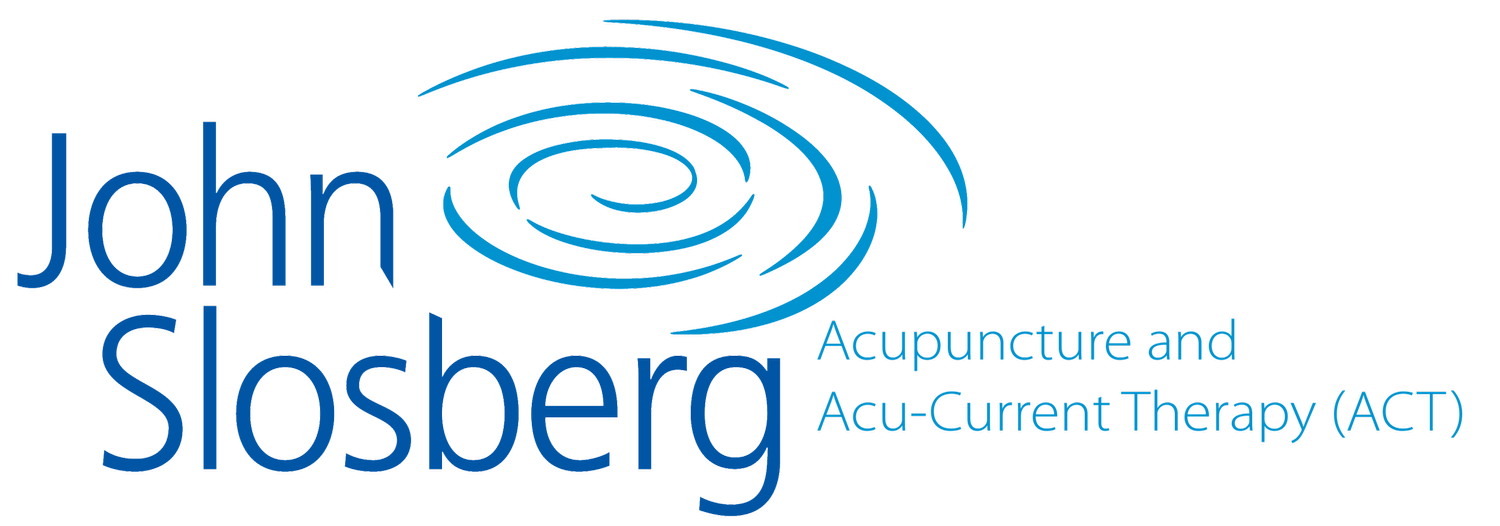About Acupuncture: Quick Answers to Common Questions
What is Acupuncture?
Acupuncture is the most well-known component of a system of medicine that has been practiced in China for thousands of years. Treatments involve the insertion of a number of stainless-steel sterile needles on specific points of the body to improve and maintain health. An Acupuncturist is trained to be able to determine which Acupuncture points in combination will bring about the best result for a patient.
The goal of treatment is to bring the body to an optimal state of functioning by engaging its natural healing response to reverse the progression of disease, or to prevent disease from occurring. Acupuncture is safe, effective, and deeply relaxing for most people. Further, the Western medical establishment is increasingly acknowledging the validity of this ancient healing method for a variety of conditions.
How does Acupuncture work?
From a Chinese medical perspective, acupuncture works by stimulating a patient's Qi (life force), to flow more freely, thereby balancing and adjusting any disharmony that exists within the body, mind, and spirit of the patient. From a western perspective, exactly how acupuncture works is not fully understood. However, some theories suggest acupuncture stimulates endorphins--the same chemical that results in a feeling of elation after vigorous exercise. Many practitioners feel that acupuncture stimulates endorphins—the same chemical that results in runner’s high, or that feeling of elation after vigorous exercise. Others theories include that an increase in blood flow occurs in areas that are treated. Recent research suggests that treatments calm areas of the brain that register pain and activate those that are involved in rest and recuperation. Thermal imaging has shown that acupuncture can reduce inflammation.
What can Acupuncture do for me?
Acupuncture is a comprehensive medical system and can address just about any illness. First of all, acupuncture can offer significant stress reduction benefits—it can make you feel more rested, more relaxed, more “in your body.” In fact, the deep relaxation that often accompanies an acupuncture treatment is the environment which allows the body to “reset” itself. This deep relaxed state is similar in some respects to the rest period taken at the end of a yoga class. Since stress is acknowledged to be a major factor in many illnesses, a wide range of symptoms can be diminished through a course of acupuncture treatments.
Currently, the World Health Organization lists 106 conditions that it feels are appropriate for acupuncture treatment. For instance, research from leading institutions such as the National Institute clearly shows that acupuncture is effective for many types of pain. Its anti-inflammatory effects makes it suitable for addressing symptoms associated with seasonal allergies and some auto-immune disorders. And studies also confirm its use for post-operative, pregnancy-related, and chemotherapy-related nausea and vomiting. (For a more complete list of conditions, please see the Services Offered and Conditions Treated page on this site.)
What if I am afraid of needles?
The majority of people have some degree of needle sensitivity. Having been in practice since 1997 –I have developed a very careful, easy approach to needling seeking to minimize discomfort. I use thin, stainless-steel, disposable needles and I take great care in my approach. I also use as few needles as possible, since I operate on the belief that in many cases “less is more.” My use of MPT (micro-current) as an adjunct to acupuncture treatments also minimizes the number of needles, the intensity of the needling, as well as needle retention time.
If you are highly averse to needles, you may want to consider MPT as a needle-free alternative to Acupuncture. (For more information on MPT, please see the About MPT page on this site.)
How many acupuncture treatments will I need?
It really depends on your specific condition and case. But it’s important to note that one of the key strengths of acupuncture is its preventative capabilities. Often a slight pain or restriction in an area of the body is a precursor of a more significant problem. By coming in for treatments before there is a serious problem, you may avoid a more involved treatment regimen. In fact, many patients come to me simply to feel better and keep their bodies balanced.
